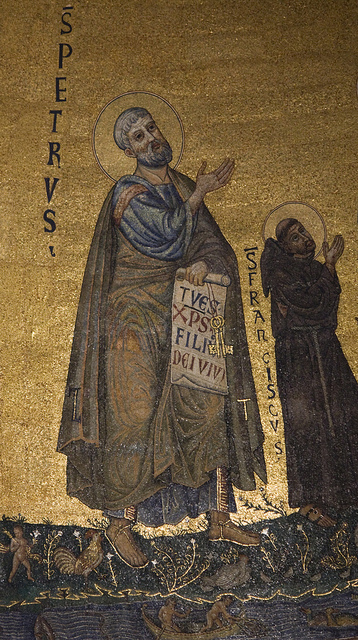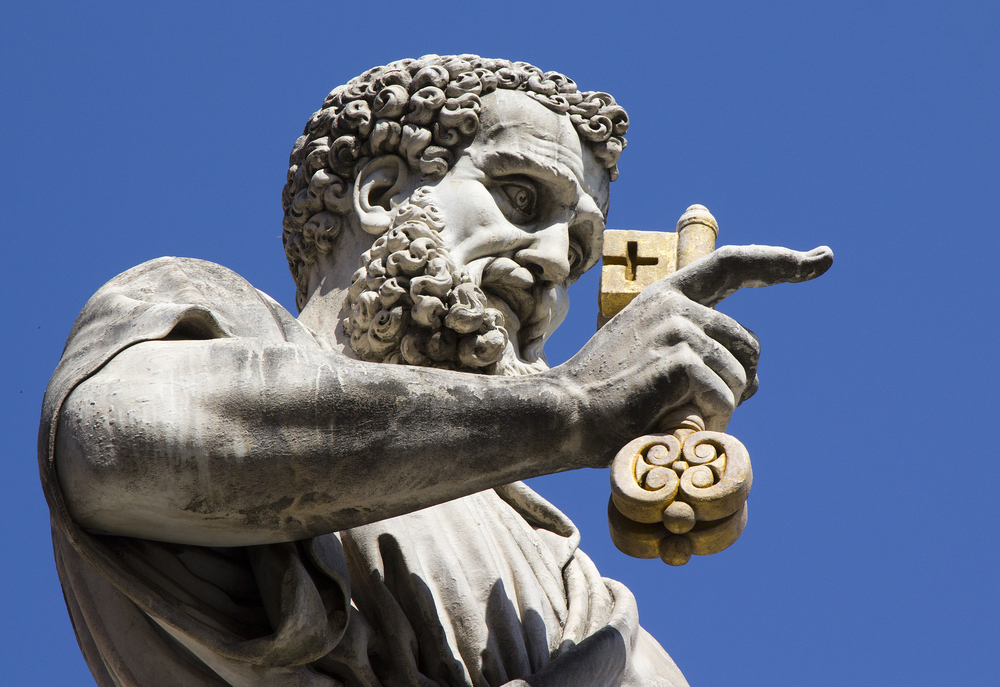In an aptly-sad, darkly-hopeful, meditation of an essay over at On Faith, Tim O’Brien confesses his sympathy for Judas. “Yes, that Judas,” he writes, “Judas Iscariot. The betrayer. The Lost One. The bad guy who rivals only Satan in the collective Christian imagination.”
Confession made he turns quickly to the main question: just what is the difference between Judas and Peter?
He’s right to ask. These Holy Week readings place precisely that question – and a number of others as well – right in our faces. We can hardly look around them though we try. They talk about both Judas’ betrayal with a kiss in the garden and Peter’s betrayal with a word in the courtyard. Both travelled with him, presumably loved him, and both turned their back on him in the hour of deep need.
O’Brien’s answer is, for me, a surprising one. It’s faith. Not the faith that means belief in X proposition or Y creedal formulation. No, the faith that believes that Jesus is a certain kind of person, that Jesus (and therefore His Father – He is, after all, the Messiah) is the kind of person who forgives. It’s faith, writes O’Brien, in forgiveness.
As a young priest who consistently finds himself surprising people by saying that hearing confessions is the best part of being a priest, let me just say: this is a difference I can get behind. But he doesn’t leave it there.
To support and deepen this thesis O’Brien looks to another account of the Holy Thursday narrative, the one that comes from the Gospel of Luke, in which Jesus responds to Peter’s insistence that he will remain faithful by saying: “Simon, Simon, behold Satan has demanded to sift all of you like wheat, but I have prayed that your own faith may not fail; and once you have turned back, you must strengthen your brothers.” Peter said to him, “Lord, I am prepared to go to prison and to die with you.” But Jesus replied, “I tell you, Peter, before the cock crows this day, you will deny three times that you know me.”
O’Brien unpacks the paradox of Jesus’ words as follows: “On the one hand,” he writes,
Jesus prays that Peter’s faith will not fail, even as he accurately predicts the upcoming denial. So what is this faith that Jesus prays will not fail?
Faith in forgiveness. Jesus isn’t praying that Peter won’t deny him; he knows that will happen. Jesus is praying that Peter not lose faith that he can truly “turn back”: that he can repent, rejoin the community, and even strengthen his brothers and sisters. It is faith in the love and mercy of God, which is to say faith in the ministry of Jesus that Peter had witnessed first hand.
It’s just this faith, faith in forgiveness, that Judas lacked. O’Brien:
To my mind, these [Mt 27:3-5] are among the saddest words in Christianity. Though repentant, Judas has no faith in forgiveness – whether forgiveness of himself, forgiveness from the community, or forgiveness from God. We know he never returned. …
He is who we are, we who also betray in ways small and spectacular, secret and public. And he is who we might mistakenly become, when our faith in forgiveness falters.

We – spiritual descendents of the Twelve that we are – hold within ourselves the potential to be either Peter or Judas. And this difference is not faith in a thing, but faith that we can be forgiven, about this O’Brien is surely right.
***
A short personal postscript:
I remain, despite twelve years of trying to do so, unconvinced of my ability to articulate how well O’Brien’s words summarize what it is to be a priest today. Nearly perfectly well.
When it really comes down to it I find his words so moving for the same reason I find my experience in the confessional so moving: because it’s where I most often witness people refusing to be Judas; becoming St. Peter. And celebrating then. Celebrating like St. Peter when he heard the words of his friend – “It is the Lord!” – and looked up from his fishing. Looked up to see the most familiar of forms, leaning over the hot coals, cooking the fish, waiting for him.
St. Peter’s faith, as Jesus had prayed, did not fail. And he spent the rest of his life knowing both that he was unworthy of being forgiven (he was crucified, so our tradition says, up side down for Christ’s sake) and knowing that he had been anyway, and celebrating.













